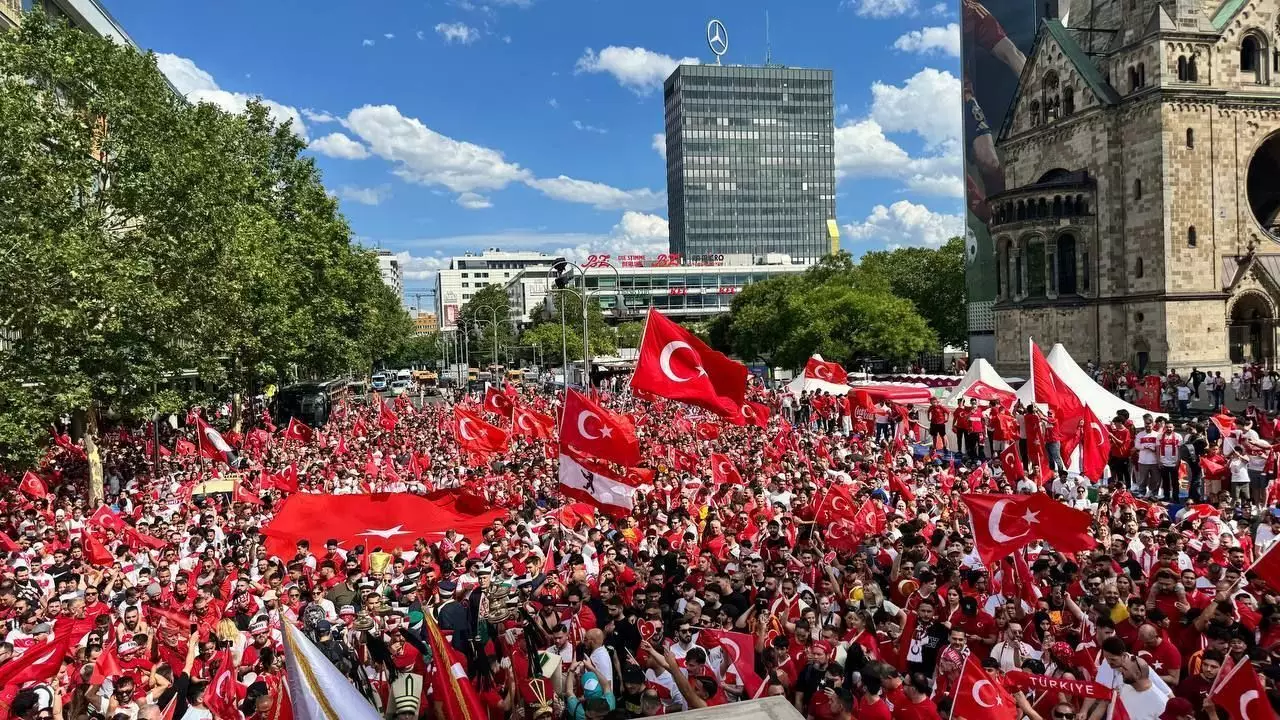During the European Championship quarterfinal between Turkey and the Netherlands, Turkish supporters were seen making nationalistic hand gestures that led to a police intervention in Berlin. The Berlin police described the situation as fans massively showing the gesture, which resulted in them asking the supporters to stop making it. While the fans were allowed to continue to the game as individuals, they were requested to refrain from displaying the gesture further.
The hand gesture in question is commonly used by Turkish nationalists and is associated with the Gray Wolves, a Turkish ultra-nationalist organization known as Ulku Ocaklari. The gesture holds political significance, as it is a symbol of Turkish nationalism. The police spokesperson Valeska Jakubowski highlighted that a football march should not be used as a platform for political demonstrations, hence the intervention by the authorities.
Following the incident involving Turkey defender Merih Demiral, who was banned for two games by UEFA for making the nationalistic gesture after scoring in a previous match, the tension surrounding the issue escalated. The ban ruled Demiral out of the quarterfinal match against the Netherlands, as well as a potential semifinal if Turkey were to progress in the tournament. The ban led to a diplomatic row between Turkey and Germany, the host nation of Euro 2024.
Support and Defiance
In response to Demiral’s suspension, both the Turkish Football Federation and government officials criticized UEFA’s decision. Turkish President Recep Tayyip Erdogan even altered his plans to attend a different event to support the team during the quarterfinal match. Erdogan defended Demiral’s actions, stating that the player was expressing his excitement after scoring a goal.
Despite the ban and the repercussions faced by Demiral, Turkish “ultras” called on other supporters to continue making the same nationalistic gesture during the national anthem before the quarterfinal match. The persistent display of the gesture showcases a sense of defiance and unity among Turkish supporters, regardless of the controversies surrounding its political implications.
The use of nationalistic gestures in football remains a contentious issue, blurring the lines between sportsmanship and political statements. The actions of both the fans and players reflect a deep sense of identity and pride, but they also highlight the complexities of incorporating politics into the realm of sports.
